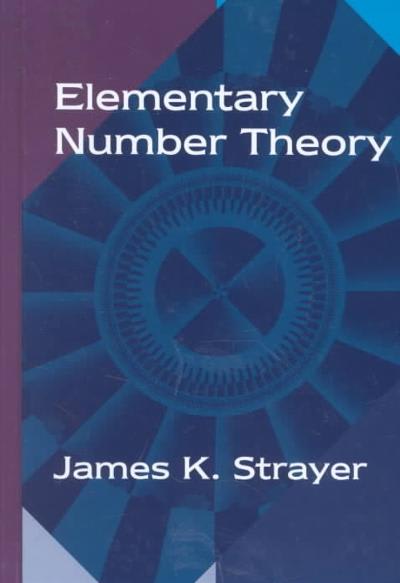Question
A researcher is interested in testing the claim that the proportion of shoppers who use coupons while shopping is at least 20%. To test this
A researcher is interested in testing the claim that the proportion of shoppers who use coupons while shopping is at least 20%. To test this claim, the researcher collects data on a sample of 500 shoppers and determines that 89 of the shoppers use coupons. Based on this data calculate the p-value corresponding to this sample data (round your answer to 3 decimal places)
Use the a portion of the Standard Normal Table shown below: (To read the Standard Normal table, match the ones and tenths digits of the z-value in the first column with the correct hundredths digit in the first row.)
z...1.31.21.11.00.00...0.0970.1150.1360.1590.01...0.0950.1130.1340.1560.02...0.0930.1110.1310.1540.03...0.0920.1090.1290.1520.04...0.0900.1080.1270.1490.05...0.0890.1060.1250.1470.06...0.0870.1040.1230.1450.07...0.0850.1020.1210.1420.08...0.0840.1000.1190.1400.09...0.0820.0990.1170.138
Solution:
The proportion of successes isp^=89500=0.178.
The test statistic is calculated as follows:
z=p^p0p0(1p0)n
z=0.1780.200.20(10.20)500
z1.23
Since we have calculated the test statistic, we can now proceed to find the p-value for this hypothesis test.
Using the test statistic and since the hypothesis test is a left tailed test, the p-value will then be the area under the standard normal curve to the left of the test statistic of -1.23.
Using the Standard Normal table given above, the area under the standard normal curve to the left of the test statistic of -1.23 is 0.109 (rounded to 3 decimal places.
Thus the p-value = 0.109.
Step by Step Solution
There are 3 Steps involved in it
Step: 1

Get Instant Access to Expert-Tailored Solutions
See step-by-step solutions with expert insights and AI powered tools for academic success
Step: 2

Step: 3

Ace Your Homework with AI
Get the answers you need in no time with our AI-driven, step-by-step assistance
Get Started


